
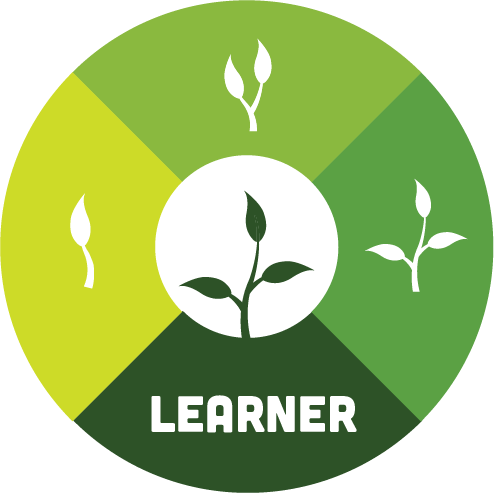 Introduction
Introduction
In order to reach your academic goals and meet your expectations, you have to do work. Sometimes this work may feel like you are jumping through the hoops that professors or your program created. It may feel like jumping through some hoops is redundant, or it’s a struggle to jump through the hoop. The learning experience and problems you faced while working towards your academic goals can be difficult. University is where you expand your mind and thinking skills. Part of the thinking is not the technical information you learn in class, but how to manage yourself and manage the struggle. This section can help you get through some of the hurdles you may face in order for you to be able to surpass your goals and expectations.
Adjusting your Mindset
Many problems students face can be solved by switching your mindset to view the problem from a different lens or perspective. Many of the problems faced can be categorized into three groups: individual capability (your personal skill set), time (or lack thereof), and Study Strategies (study practices).
Individual capability
In classes, the professor is often looking for you to prove you are capable and competent by the work you do on assignments and tests. They typically mark you based on a scheme that judges how capable and competent you are. Many students work to fit into that judgement to prove they are the most capable and competent. Internal conflict can arise when what you think you can do and what you can actually do, do not align.
Everyone has limits. The limits for post-secondary school are different than what they were in High School. Even if you are given unlimited amount of time to get 100% in a class, your personal capability or skill set will be your limiting factor. Understanding when judgements on marking schemes will be taxing your capabilities, can reduce this internal conflict.
A question that can help you align your goals and expectations to reality: How much study time is required for me to feel confident about the course material?
For more, check out the Goals & Expectations page in the Navigator Module.
Time
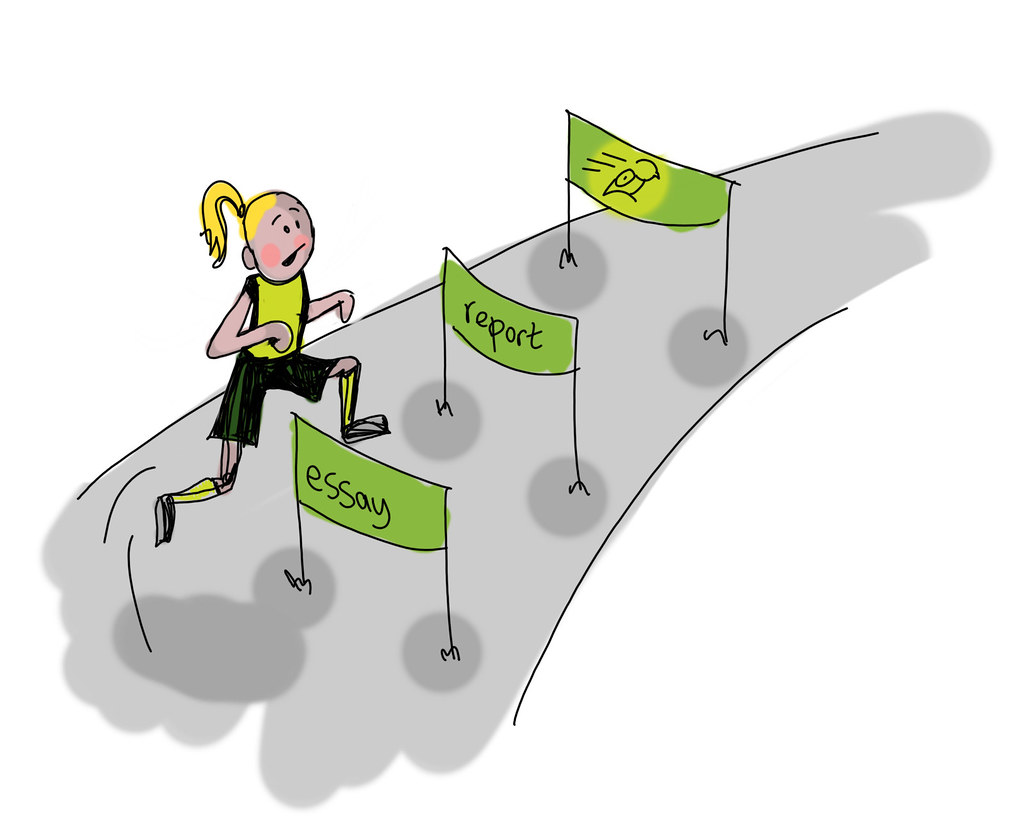 A common hurdle to jump over is having many tight deadlines and not being able to do what you want with each assignment. It can be disappointing and frustrating knowing you could do better if you had the time. However, it is better to submit half a job than it is to submit nothing. Yes, it is super difficult if you like to perfect everything, but that is not always realistic. Having a balance of what to work on the most and least is a way to reach your goals and expectations.
A common hurdle to jump over is having many tight deadlines and not being able to do what you want with each assignment. It can be disappointing and frustrating knowing you could do better if you had the time. However, it is better to submit half a job than it is to submit nothing. Yes, it is super difficult if you like to perfect everything, but that is not always realistic. Having a balance of what to work on the most and least is a way to reach your goals and expectations.
For more:
- Timelines and Workload (Navigator Module)
- Academic Balance
Study Strategies
Transitioning to post-secondary, you may find that the study strategies used in High School are no longer as effective. Improvements upon existing strategies or new strategies were required for them to get on the right path forward to reach their academic goals.
In order to know if the study strategies you used in high school still work in university, you have to try it – but be ready to improve and adapt the strategies to fit your new situation. You will know if the strategies need changes if you are getting too stressed or having an unbalanced study schedule.
Some tips other students found useful about study strategies:
- Work smarter not harder: There is often an easy way and a harder way to do things. Example with taking note: if you are finding yourself to be a slow note taker, try to record the lecture on your phone so you can go back to it later, or partner up with a friend and share your notes with each other, or print off lecture slides.
- Create to-do lists to keep track of everything you have to do. This could be a list on your computer or calendar.
- Give yourself enough time to study. Start with the concepts that you know the least.
- Review or re-do old course work (assignments, tutorials, labs, or test) while studying. This can help you learn the information, understand how the instructor writes questions, and the expectations of future work in the class.
- Create diagrams to help you understand visually.
- Research and reflect upon your individualized study plan. If you are looking for more ideas, ask your peer group to see what works for them.
- Contact your instructor or teaching assistants to have a friendly chat about the course materials and expectations.
- Understand the course concepts before you memorize them.
- Minimize distractions – including from your phone.
The Game of School Mindset
Inputting lots of energy, time, and care into meeting your goals for grades can make you feel overwhelmed and stressed. When the grades do not equal the amount of energy, time, and care that are input, you may feel frustrated.
To avoid the stress and frustration caused by grades, change your perspective to ‘play’ the Game of School. This perspective imagines the school system as a game where you are only focused on finding the easiest path to win and achieve your goals. This can be done analyzing each assignment or test and posing the question “What do I need to do to get the grade I want?”. Once that question is answered, if you do what you need to do, you have avoided the unnecessary stress and frustration of school.
Example 1: An essay requires you to write 1500 to 1800 words to A+. In the perspective of the Game of School, writing 1500-1550 words is ideal as it limits the amount of stress and frustration.
Click on the image below for a larger version.
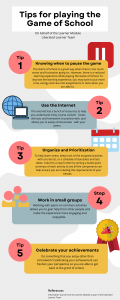
Think about this: The instructor assigns homework that is due tomorrow. Answer the following questions
- What do you think is the minimum you can do to pass? How would you play the game of school?
- What do you think is the maximum you can do?
- What do you think is the optimal amount of work/engagement you should do?
Path to Success
Getting on the right trail so you can have success.
With all the detailed work, assignments, and hoops to jump through in school, sometimes students can forget what success looks like. Success is getting on the right trail, working towards your goals and expectations, and then surpassing your goals and expectations. This can look different from student to student as everyone has different goals, objectives, or values.
Finding the right trail
This means you are aligning what you think you want to do, and what you actually want to do. Some students think they want to be in a certain program, join a certain club, or do a certain activity. After realizing what those things entail, they switch to what they whole-heartedly want to do.
After you have experienced the first thing you think you wanted to do, ask yourself if this is actually what you want to do.
Finding the right trail also includes how to do what you want to do. Coming up with a plan so you are able to do what you want to do – to be able to reach your goals. This could mean you change or improve your study strategies; you try different things, you ask others (peer group, guidance counselors) for suggestions.
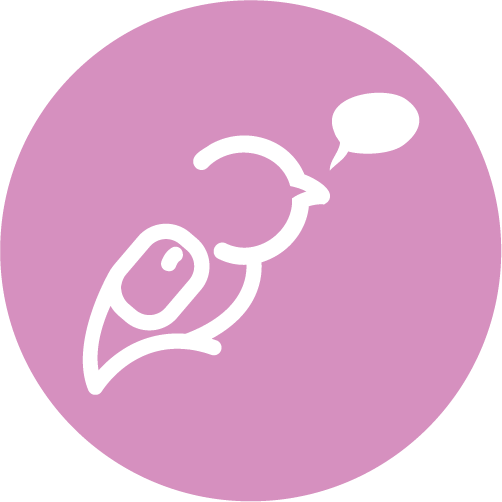 Just Sayin’. After you know what you want to do, you should develop a plan to accomplish it. There’s some Goals and Expectations help in the Navigator Module. Just sayin’.
Just Sayin’. After you know what you want to do, you should develop a plan to accomplish it. There’s some Goals and Expectations help in the Navigator Module. Just sayin’.

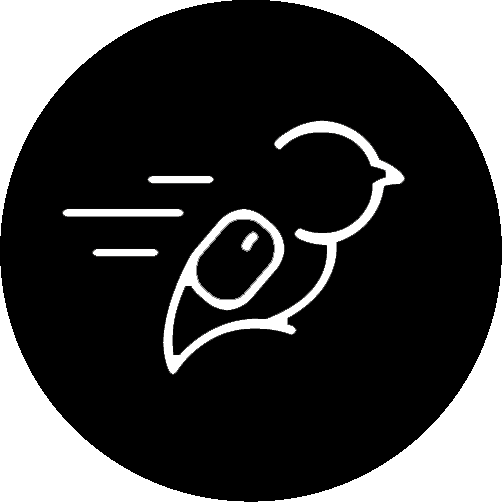 Activity: Finding Your Path
Activity: Finding Your Path